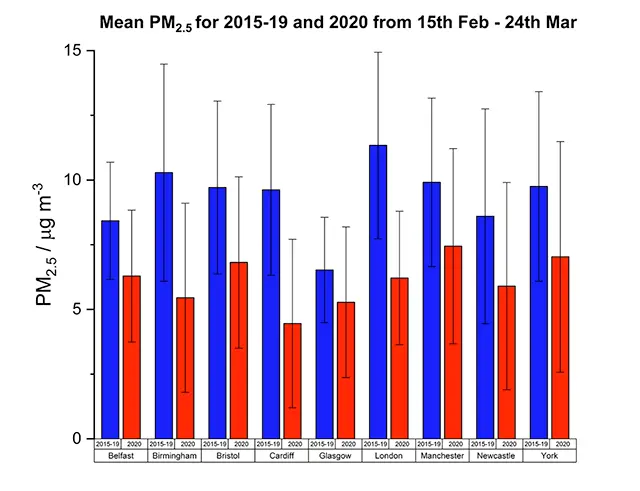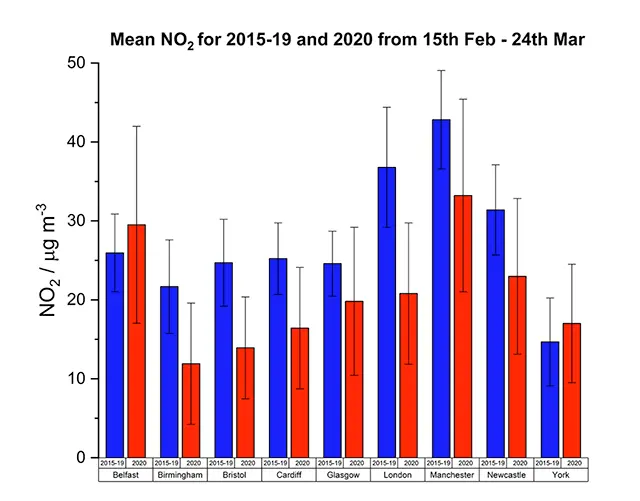Coronavirus: Wales' air pollution drops because of lockdown
 BBC
BBCPollution in Cardiff and other cities has fallen because of the coronavirus lockdown.
National Atmospheric Centre data shows nitrogen dioxide levels and small particle pollution is significantly lower than normal.
It said air quality levels could continue to improve in the coming weeks.
Scientists compared this year's pollution to average air pollution over the past five years.
They looked at data from 10 UK cities: Birmingham, Belfast, Bristol, Cardiff, Glasgow, Leeds, London, Manchester, Newcastle and York.
Nitrogen dioxide is produced by vehicle engines, power plants and other industrial processes.
It can cause severe respiratory problems and worsen existing conditions such as asthma.

James Lee, a professor of atmospheric chemistry from the National Centre for Atmospheric Science and the University of York, said: "The air is definitely much healthier.
"These are big changes - pollution levels at the moment are the equivalent of a holiday, say an Easter Sunday."
The data comes from background air monitoring stations in cities, sited away from main roads.
"We chose these because that is where people live," said Prof Lee.
"This is a really big opportunity for us to see into the future when more people will have electric cars."

Driving has dropped dramatically since the government asked people only to go out for essential journeys.
Towns and cities across Wales have seen dramatic declines in vehicle numbers on roads and the closure of shops and factories has also cut pollution across the world.
Satellite images have shown huge differences in worldwide pollution.
Prof Lee said lockdown was giving scientists an insight into the future: "I think it will definitely change people's behaviour.
"I think a lot more of us will work from home, people won't want to travel to meetings, it is going to have an effect."
'Hear more birds'
 Montgomeryshire Wildlife Trust
Montgomeryshire Wildlife TrustWildlife experts said people can now hear more birds and other animals because noise pollution has fallen.
Janine Pannett, of Montgomeryshire Wildlife Trust's Dyfi Osprey Project in Machynlleth, said: "Just take that little bit of extra time to enjoy what's on your doorstep.
"Whether it's opening the window and listening to the birdsong for 10 minutes or if you're lucky enough to have access to a green space go and see - whether it's insects, birds, what's there on your doorstep.
"Birdsong is very important. Time of year is really important to listen out for returning migrants, not just large birds like our ospreys, but smaller birds like the chiffchaff, and it's so uplifting to hear the sounds of spring creeping in."
The team has just put the finishing touches to cameras monitoring their osprey nest.
They're expecting the birds to return from Africa in the next few days.
"This is always the most exciting time," Ms Pannett said.
"We have no idea what's happened to our breeding pair Monty and Telyn since they left us in August and September last year.
"Hopefully they're winging their way back to us as we speak."

- A SIMPLE GUIDE: How do I protect myself?
- AVOIDING CONTACT: The rules on self-isolation and exercise
- LOOK-UP TOOL: Check cases in your area
- MAPS AND CHARTS: Visual guide to the outbreak
- VIDEO: The 20-second hand wash

